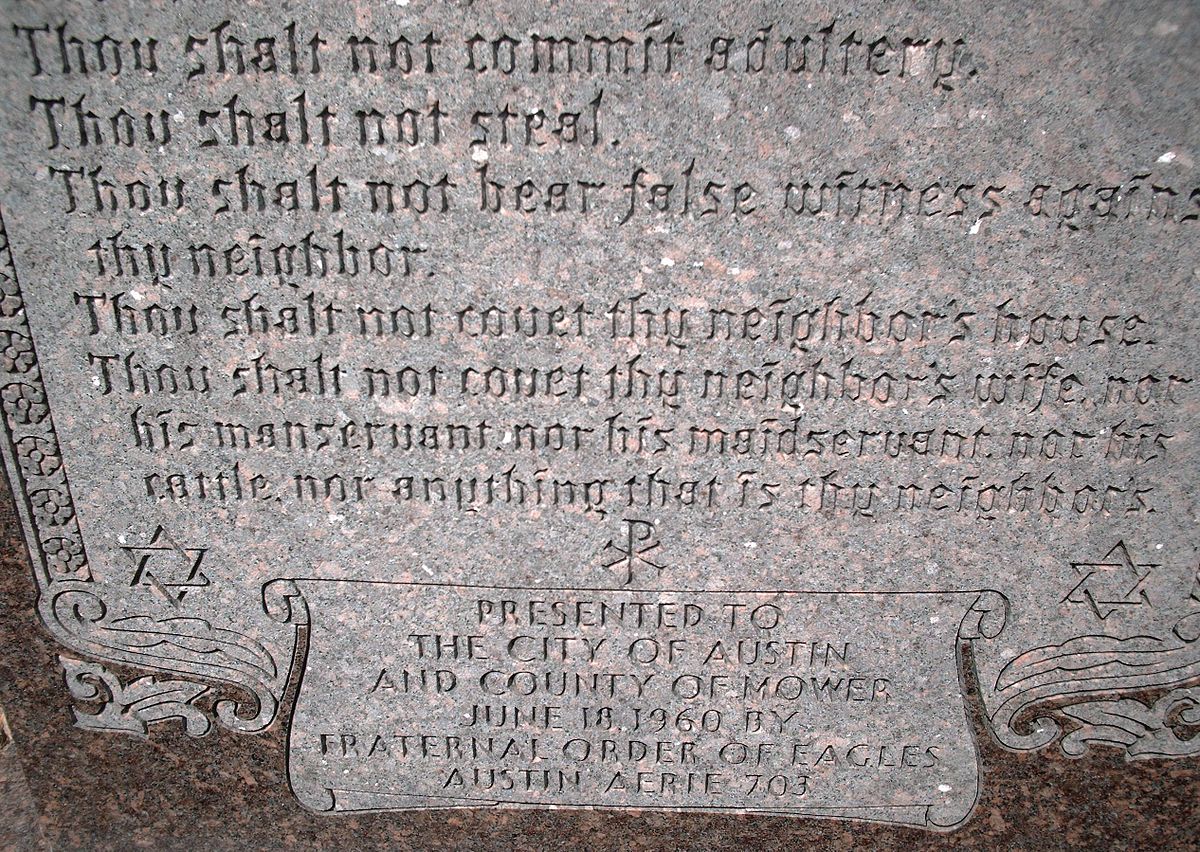Jesus Is Lord of the Sabbath
6 On a Sabbath, while he was going through the grainfields, his disciples plucked and ate some heads of grain, rubbing them in their hands. But some of the Pharisees said, “Why are you doing what is not lawful to do on the Sabbath?” And Jesus answered them, “Have you not read what David did when he was hungry, he and those who were with him: how he entered the house of God and took and ate the bread of the Presence, which is not lawful for any but the priests to eat, and also gave it to those with him?” And he said to them, “The Son of Man is lord of the Sabbath.”
A Man with a Withered Hand
On another Sabbath, he entered the synagogue and was teaching, and a man was there whose right hand was withered. And the scribes and the Pharisees watched him, to see whether he would heal on the Sabbath, so that they might find a reason to accuse him. But he knew their thoughts, and he said to the man with the withered hand, “Come and stand here.” And he rose and stood there. And Jesus said to them, “I ask you, is it lawful on the Sabbath to do good or to do harm, to save life or to destroy it?” And after looking around at them all he said to him, “Stretch out your hand.” And he did so, and his hand was restored. But they were filled with fury and discussed with one another what they might do to Jesus.
The Twelve Apostles
In these days he went out to the mountain to pray, and all night he continued in prayer to God. And when day came, he called his disciples and chose from them twelve, whom he named apostles: Simon, whom he named Peter, and Andrew his brother, and James and John, and Philip, and Bartholomew, and Matthew, and Thomas, and James the son of Alphaeus, and Simon who was called the Zealot, and Judas the son of James, and Judas Iscariot, who became a traitor.
Jesus Ministers to a Great Multitude
And he came down with them and stood on a level place, with a great crowd of his disciples and a great multitude of people from all Judea and Jerusalem and the seacoast of Tyre and Sidon, who came to hear him and to be healed of their diseases. And those who were troubled with unclean spirits were cured. And all the crowd sought to touch him, for power came out from him and healed them all.
The Beatitudes
And he lifted up his eyes on his disciples, and said:
“Blessed are you who are poor, for yours is the kingdom of God.
“Blessed are you who are hungry now, for you shall be satisfied.
“Blessed are you who weep now, for you shall laugh.
“Blessed are you when people hate you and when they exclude you and revile you and spurn your name as evil, on account of the Son of Man! Rejoice in that day, and leap for joy, for behold, your reward is great in heaven; for so their fathers did to the prophets.
Jesus Pronounces Woes
“But woe to you who are rich, for you have received your consolation.
“Woe to you who are full now, for you shall be hungry.
“Woe to you who laugh now, for you shall mourn and weep.
“Woe to you, when all people speak well of you, for so their fathers did to the false prophets.
Love Your Enemies
“But I say to you who hear, Love your enemies, do good to those who hate you, bless those who curse you, pray for those who abuse you. To one who strikes you on the cheek, offer the other also, and from one who takes away your cloak do not withhold your tunic either. Give to everyone who begs from you, and from one who takes away your goods do not demand them back. And as you wish that others would do to you, do so to them.
“If you love those who love you, what benefit is that to you? For even sinners love those who love them. And if you do good to those who do good to you, what benefit is that to you? For even sinners do the same. And if you lend to those from whom you expect to receive, what credit is that to you? Even sinners lend to sinners, to get back the same amount. But love your enemies, and do good, and lend, expecting nothing in return, and your reward will be great, and you will be sons of the Most High, for he is kind to the ungrateful and the evil. Be merciful, even as your Father is merciful.
Judging Others
“Judge not, and you will not be judged; condemn not, and you will not be condemned; forgive, and you will be forgiven; give, and it will be given to you. Good measure, pressed down, shaken together, running over, will be put into your lap. For with the measure you use it will be measured back to you.”
He also told them a parable: “Can a blind man lead a blind man? Will they not both fall into a pit? A disciple is not above his teacher, but everyone when he is fully trained will be like his teacher. Why do you see the speck that is in your brother’s eye, but do not notice the log that is in your own eye? How can you say to your brother, ‘Brother, let me take out the speck that is in your eye,’ when you yourself do not see the log that is in your own eye? You hypocrite, first take the log out of your own eye, and then you will see clearly to take out the speck that is in your brother’s eye.
A Tree and Its Fruit
“For no good tree bears bad fruit, nor again does a bad tree bear good fruit, for each tree is known by its own fruit. For figs are not gathered from thornbushes, nor are grapes picked from a bramble bush. The good person out of the good treasure of his heart produces good, and the evil person out of his evil treasure produces evil, for out of the abundance of the heart his mouth speaks.
Build Your House on the Rock
“Why do you call me ‘Lord, Lord,’ and not do what I tell you? Everyone who comes to me and hears my words and does them, I will show you what he is like: he is like a man building a house, who dug deep and laid the foundation on the rock. And when a flood arose, the stream broke against that house and could not shake it, because it had been well built. But the one who hears and does not do them is like a man who built a house on the ground without a foundation. When the stream broke against it, immediately it fell, and the ruin of that house was great.”
(ESV)
Luke 6 Commentary
by Brad Boyles
And Jesus said to them, “I ask you, is it lawful to do good or to do harm on the Sabbath, to save a life or to destroy it?” 10 After looking around at them all, He said to him, “Stretch out your hand!” And he did so; and his hand was restored. 11 But they themselves were filled with rage, and discussed together what they might do to Jesus.
Luke 6:9-11 NASB
I think it’s beneficial for us to take a look at the core issue that the Pharisees had with Jesus. On the surface, it would seem that their beef was merely over breaking the Sabbath law. Jesus had been teaching and healing with power and authority up to this point. I believe that in the book of Luke there are six encounters with Jesus “doing something” on the Sabbath and in three of them He is challenged by the Pharisees. Luke 6 begins a turning point in Jesus’ ministry as the Pharisees begin to question Him more intensely. So, was it really the Sabbath law that ruffled their feathers?
I am fascinated by the term used here to describe the Pharisees in verse 11. It says, “they themselves were filled with rage, and discussed what they might do to Jesus.” To them, Jesus was violating not only a law, but the Jewish identity as a nation. This was who they were. It was personal. The Pharisees formed their very identity around the strict observance of the Jewish laws, even if it was a bad interpretation of what God had intended. So what would this look like today? What produces an identity crisis that “fills people with rage” when they are challenged by Scripture?
Many people place their stock on good works. They have committed their lives to being a good person. When challenged with the idea of God’s grace, they simply can’t understand it. It’s so unbelievably offensive that God would allow (in their opinion) a “bad” person into heaven. What’s the real issue here?
Or how about the popular ideology of a personal message from God? There are some people so wrapped up in “God told me to” or “God said to” that they have formed their entire identity around a personal emotional experience. I believe personal experiences happen, but I’ve also met a lot of people who couldn’t care less about actually reading and understanding Scripture. They just want to experience a supernatural, miraculous encounter that makes them appear like a modern-day super apostle.
The point is, the Pharisees built their entire existence on the Law instead of the Word of God. Their loyalty was to the ritual instead of the relationship. In their case, it was the Word in the flesh who stood before them. Jesus was the Word. People today who do not put Scripture as the ultimate authority in their life will become Pharisees. They will continue to justify their behavior and avoid being convicted. Arrogance, pride, and self-righteousness will follow.
Jesus came with a message from God. He was and is the final authority and His story is written clearly in black and white print. If we put our identity in anything else, we will be filled with rage instead of humility when the actual Truth stands directly before us.




